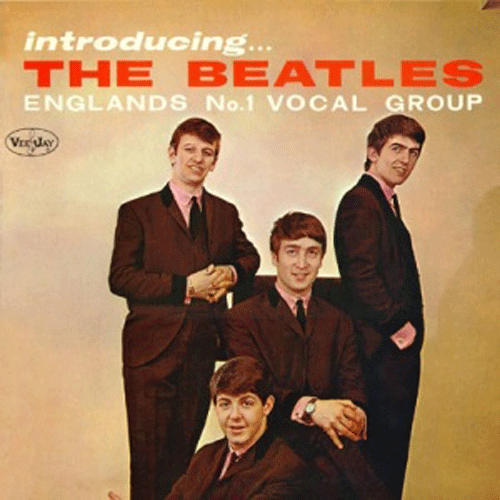
Monday, January 1, 1962 was bone-chilling cold across England. An aspiring musical group, the Beatles, jammed into a small car, wended their way through snowstorms from Liverpool to London.
Their determination paid off: they were on time for an 11 a.m. audition at Decca Records.
Mike Smith, the Decca rep who would supervise the audition, was late. His priorities had been elsewhere on New Years’s Eve.
The Audition
Smith directed the Beatles to use Decca amplifiers. He regarded their own as substandard for recording purposes.
John Lennon, Paul McCartney, George Harrison and Pete Best performed 15 songs, including several Lennon-McCartney originals.
It has been reported that the group, and their manager Brian Epstein were confident that they would be signed to a recording contract.
Decca’s Decision
Decca passed.
Decca executive Dick Rowe issued his verdict: Guitar groups are on the way out, Mr. Epstein.
Oooops……
Improbably, Decca Gets a Second Chance
Epstein’s advocacy of his group was nonetheless not discouraged. He returned to London for follow-up meetings with Rowe. He even offered to purchase, thorough his NEMS Music company, sufficient recordings to ensure that Decca could not lose in the proposition.
Yet again, Decca whiffed.
The Beatles—and Dick Rowe—Enter History
Knowing what we know now, it’s easy to mock the hapless Dick Rowe. He’s immortalized as “the man who turned down the Beatles.”
Rowe was not a certified idiot. In fact, he was a renowned producer who went on to work with the Rolling Stones, Tom Jones and others.
Soon thereafter, a lesser-known producer at a lesser-known label, George Martin at Parlophone, somewhat reluctantly recognized that the Beatles had something special. The rest is history.
Missed Opportunities Last Forever
They chose another group that auditioned on the same day: Brian Poole and the Tremolos.
Consider the Beatles-Decca tableau from a distance.
Lennon, McCartney, Harrison and Brian Epstein were tempered by yet another experience. They would, in a matter of weeks, begin their unparalleled ascent. They were ready for their opportunity.
Dick Rowe and Decca missed their opportunity. So, too, drummer Pete Best would soon be removed, when recordings revealed that his work was not keeping up with the others.
Rationalize it as they might, the opportunity moment for Decca and Best had passed forever. There is no second chance, particularly as the stakes get higher. The costs and consequences rise in tandem with the magnitude of the missed opportunity.
Will You Be Prepared For Your Opportunity?
Are you prepared for your breakout opportunity? Are you confident you would recognize it–and act on it? Are you ready–at this moment--to make changes, to make your move? Are you observing and listening–really observing and listening–so that you will recognize an opportunity before you? Have you internalized the reality that the greater the opportunity, the more likely that it will never be matched, much less repeated?
Are you making certain that you maintain an insurgent’s mindset? Are you making certain that you maintain an insurgent’s mindset? Are you resisting the lures of an incumbent mindset?
How will your actions today look in one year, two years, five years—fifty years?
The Beatles and Decca Records and Opportunity.
